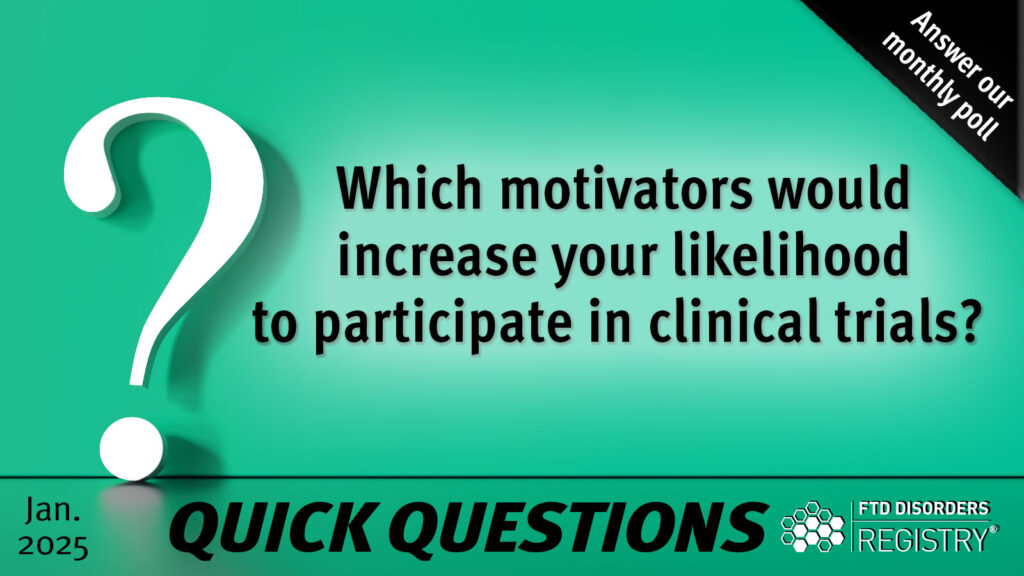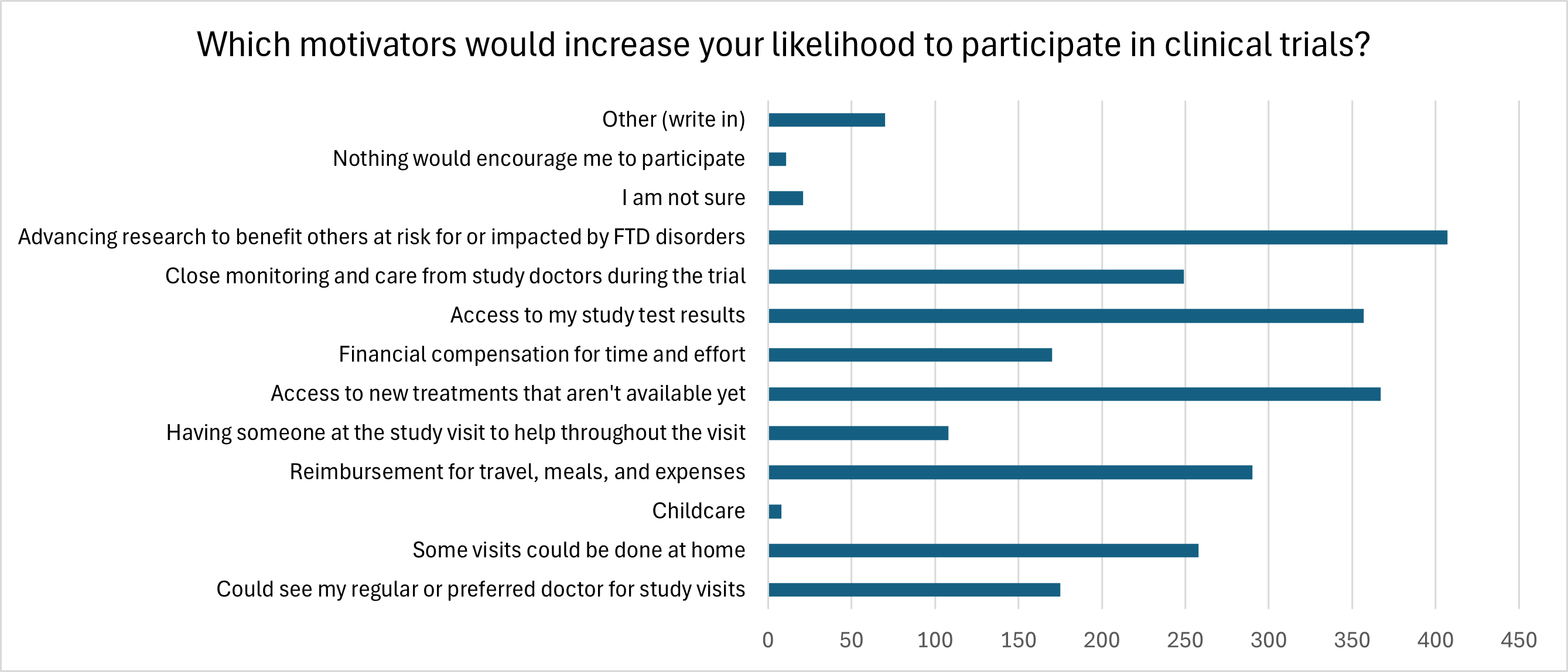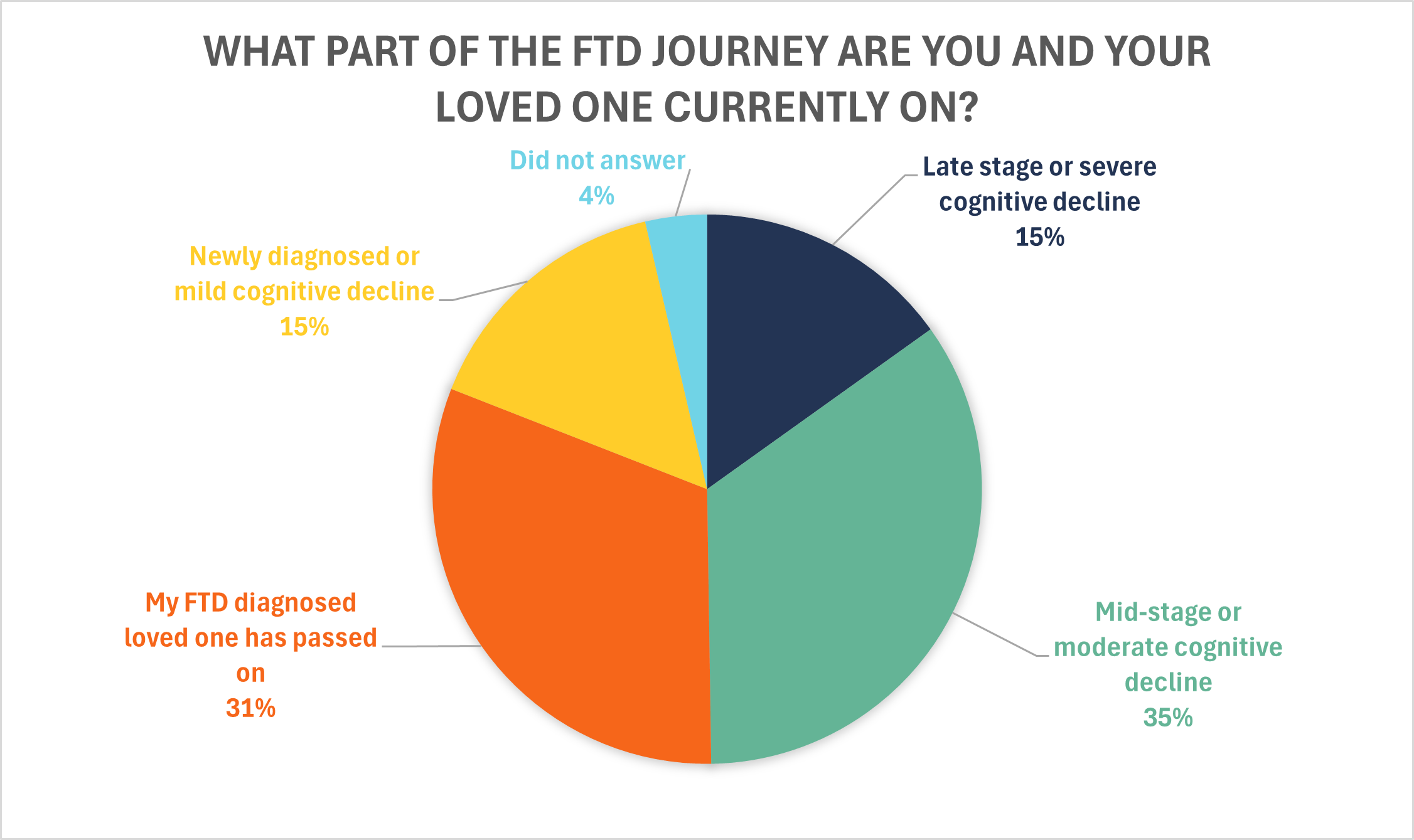PRESS & NEWS
Quick Question January 2025 Result: Which motivators would increase your likelihood to participate in clinical trials?

635 people answered our question The top three answers were: - Advancing research to benefit others at risk for impacted by FTD disorders (64%) - Access to new treatments that aren’t available yet – (57.7%) - Access to my study test results – (56.2%)
Clinical trials are essential for developing new treatments and improving patient care, as they rigorously test the safety and effectiveness of innovative therapies. However, in FTD disorders research, a significant challenge is the limited number of participants. Without enough participation in clinical trials, studies may lack the statistical power needed to detect meaningful treatment effects, slowing progress and delaying the discovery of life-changing interventions for those affected by FTD disorders.
In the FTD Disorders Registry January Quick Question, 635 people answered our question about what motivators would increase the respondent’s likelihood of participating in clinical trials.

The top three answers were:
-
- Advancing research to benefit others at risk for impacted by FTD disorders (64%)
- Access to new treatments that aren’t available yet – (57.7%)
- Access to my study test results – (56.2%)
Other factors that scored highly were reimbursement for travels, meals, and expenses (45.6%); the ability to do some visits at home (40.6%); close monitors and care from the study doctors (39.2%); seeing their regular or preferred doctor for study visits (27.5%); financial compensation for time and effort (45.6%); and having someone at the study visit to help throughout the visit (17%). 70 participants shared personal reasons that would influence their decision to participate in clinical trials, and 11 respondents stated that nothing would motivate them to participate.
Demographics
Most people responding to this Quick Question were spouses answering on behalf of the FTD-diagnosed person (32.1%). We also received a large number of responses from biological family members answering for themselves (20.9%), individuals diagnosed with an FTD disorder answering themselves (20.1%), and biological family members answering on behalf of a person diagnosed with and FTD disorder (12.9%).

We received input on this Quick Question from all stages of the FTD Journey. The largest group were those in the middle stages of FTD (30%), but we also received input from those whose FTD-diagnosed loved one had already passed away (31.1%), those newly diagnosed (15.4%), and those in the late-stage of FTD (15.1%)
The majority of respondents to this Quick Question were female (63.6%). 34.9% were male. Two people did not identify their gender. Answers came from around world with respondents reporting in from 25 countries and 46 states.
Together we can find a cure for ftd
The FTD Disorders Registry is a powerful tool in the movement to create therapies and find a cure. Together we can help change the course of the disease and put an end to FTD.
Your privacy is important! We promise to protect it. We will not share your contact information.



